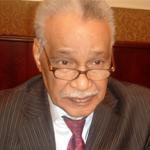Abstract
This paper deals with the political economy of inequality in the distribution of consumption expenditure in the Arab region, using consumption expenditure as the best available proxy for the standard of living in developing countries (in contrast to income being the relevant proxy in the advanced countries). Following a brief discussion of the relevant concept of development to be adopted, we discuss the nature of the Arab social contracts that have prevailed in the region since independence and up to the mid-1980s. We show that, compared to the world, the Arab region enjoys a medium degree of inequality. This, we suggest, should be understood as the cumulative achievement of the redistributive social contracts. We also show that the recent trend, however, is one of increased inequality and discuss these recent trends in the context of tolerance towards inequality during the early stages of development. Societies that tolerate increasing inequality are said to be endowed with a deep "tunnel effect" ala Hirschman (1973). In the absence of the "tunnel effect" developing countries could fall into "development disasters" such as civil wars. We show that a relatively large number of Arab countries experienced "development disasters" over the period since independence. Finally, we address "inequality traps", the interplay of socio-political and economic inequalities. Inequality traps are essentially based on the concept of equality of opportunity. Policies required for dealing with such traps during the process of development are reviewed and are found to be equivalent to the type of policies that were pursued by the Arab countries prior to their succumbing to neo-liberal policy packages of the 1980s and 1990s.
Arabic Abstract:
تتناول هذه الورقة الاقتصاد السياسي الخاص بغياب المساواة في توزيع الإنفاق على الاستهلاك في المنطقة العربية باستخدام الإنفاق على الاستهلاك كأفضل المؤشرات المتاحة الدالة على مستوى المعيشة في البلدان النامية (في مقابل الدخل الذي يستعان به كدليلٍ على مستوى المعيشة في البلدان المتقدمة). فبعد مناقشة موجزة حول مفهوم التنمية الذي سيتم تبنيه، تناولنا بالنقاش طبيعة العقود الاجتماعية العربية التي انتشرت في المنطقة العربية منذ الاستقلال وحتى أواسط الثمانينيات من القرن المنصرم. ونوضح انه بالمقارنة ببقية دول العالم فإن المنطقة العربية تتسم بدرجةٍ متوسطةٍ من اللامساواة وهو ما نرى بضرورة فهمه على أنه نتيجة تراكمية للعقود الاجتماعية الخاصة بإعادة التوزيع. ونوضح كذلك أنه على الرغم من ذلك فإن الاتجاه الحالي يجنح إلي المزيد من انعدام المساواة، كما نتناول بالدراسة تلك الاتجاهات المعاصرة في سياق التساهل في التعامل مع اللامساواة خلال المراحل الأولى من التنمية. ويقال عن المجتمعات التي تتساهل في التعامل مع الافتقار المتزايد إلي المساواة أنها قد تتميز "بمفعول النفق" العميق على حد تعبير هيرشمان (1973). ففي غياب "مفعول النفق" هذا قد تتعرض البلدان النامية "لكوارث تنموية" كالحروب الأهلية. وعلى سبيل المثال نبين أن عدداً كبيراً نسبياً من الدول العربية قد مرت بتجربة "كوارث التنمية" خلال الفترة التي أعقبت استقلالها. وفي الختام، نتناول "فخاخ غياب المساواة" والتفاعل بين انعدام المساواة على المستويين السياسي-الاجتماعي والاقتصادي. وتقوم فخاخ غياب المساواة على مفهوم تكافؤ الفرص. وقد تم استعراض السياسات الواجب تبنيها لمعالجة مثل هذه الفخاخ خلال عملية التنمية ووجد أن هذه السياسات تضاهي نوع السياسات التي اتبعتها الدول العربية قبل خضوعها لحزم السياسة الليبرالية الجديدة خلال ثمانينيات وتسعينيات القرن الماضي.

In Honorable Memory
Senior Associates
Ali Abdel-Gadir Ali
In Honorable Memory


